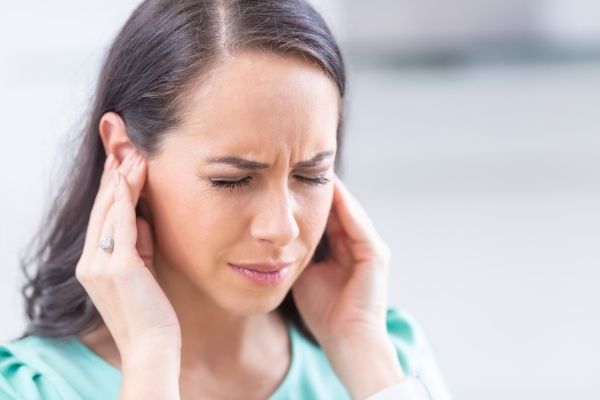
Tinnitus is a hearing disorder that causes ringing or other kinds of noises in one or both ears. The noise you experience when suffering from tinnitus doesn’t originate from an outside source; you’re the only who can hear it. This condition affects about 20 percent of the population and is significantly more prevalent among the elderly. Tinnitus is often engendered by a preexisting condition, such as hearing loss attributed to age, ear injury, or a defect of the circulatory system. For many people, this hearing problem eases with treatment or medications that alleviate or stop the noise altogether. Let’s look at what causes tinnitus and helpful tips to reduce it.
Typical Causes of Tinnitus
Tinnitus is caused by several health conditions, some of which worsen it. There is no one singular cause for tinnitus.
- Hearing Loss
The inner ear, also known as the cochlea, contains tiny, delicate hair cells that move whenever sound waves are directed to the ear. This movement instigates electrical signals along the auditory nerve. The brain perceives these signals as sound.
Aging or routine exposure to loud noises causes the hairs found in the inner ear to bend or break, allowing irregular leakage of electrical signals into your brain, resulting in tinnitus.
- Ear Infection and Ear Canal Blockage
Accumulation of fluid, dirt, earwax, and other foreign substances can cause blockage of ear canals. A blockage can cause pressure imbalance within your ear, triggering tinnitus.
- Head and Neck Injuries
Head or neck injuries can impact the cochlea, hearing nerves, or brain function attributed to hearing. Such cases typically bring about tinnitus in only one ear.
- Medications
Several medications can engineer or deteriorate tinnitus. Usually, tinnitus tends to become severe with an extreme dosage of such medications. Often, the disturbing noise fades when you cease using these medications.
Treatment Options for Tinnitus
- Hearing Aids
Hearing aids with sound amplification can hugely help people experiencing difficulties due to tinnitus.
- Lifestyle Changes
Stress doesn’t trigger tinnitus but it can make it more severe. Therefore, you can ease tinnitus by taking the necessary steps to alleviate stress in your day-to-day life.
For instance, you can participate in an activity you’re enthusiastic about or engage with a reliable friend or family member to ease stress in your life. Additionally, you can stay away from loud sounds to reduce the extremity of your tinnitus.
- Transcranial Magnetic Stimulation (TMS) for Tinnitus
TMS is a non-surgical, FDA-certified form of treatment for tinnitus and depression, among other disorders. The implications of TMS tinnitus treatment have been analyzed for a while, including a finding that denoted the likelihood of low-frequency repetitive TMS (rTMS) on persisting tinnitus.
Multiple studies have confirmed that rTMS reduces the loudness of tinnitus. Studies further denoted rTMS to be more beneficial to chronic tinnitus patients with no hearing problems and sleep disruptions.
- Regulate Caffeine, Alcohol, and Nicotine Intake
When consumed in excess, these substances can disrupt blood flow, resulting in tinnitus.
- Cochlear Implants
Cochlear implants are also another viable means to address hearing loss. A cochlear implant is simply a gadget that permits the brain to skip the impaired part of the ear to aid one to hear properly. This implant conveys the signals required to process the sound to the auditory nerve.
Conclusion
Tinnitus is an irritating hearing problem, especially if it is chronic, but the fortunate thing is that it can be remedied by the above treatment options. So, if you’re battling tinnitus in Orange County, book an appointment with highly skilled health professionals at Advanced Neurology Medical Clinic for rigorous diagnosis and treatment.

